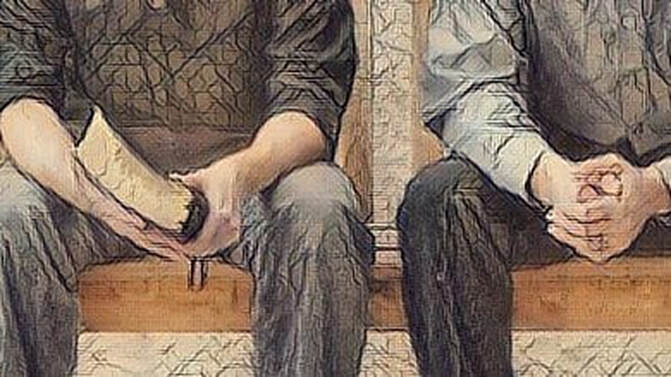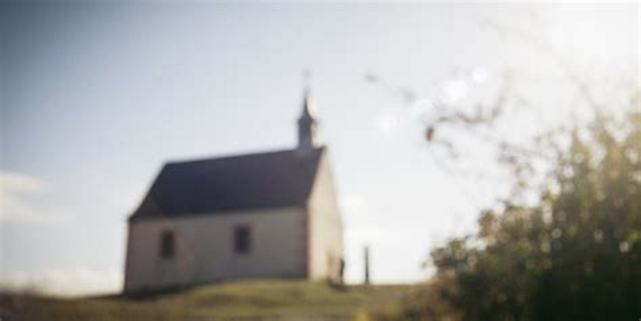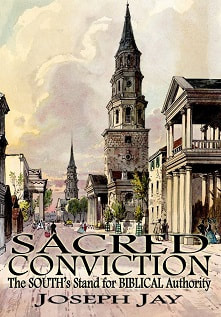|
It was the summer of 2014. I arrived on campus excited for what the semester would bring. My roommates were friendly, a big lake was nearby just waiting for my fishing pole, and most exciting of all - I would finally learn how to study Scripture in the original languages for myself! I was like many students at the seminary, including my roommates. We were passionate for knowing God and preaching the gospel. I remember going out at midnight with my roommate Terry to share the message of Christ with employees at Walmart. We would often talk about God taking us to foreign lands to proclaim the same message to a different people group. We prayed, we dreamed, we studied. The only thing that seemed out of place were the chapel messages. Some were very good as the preacher passionately expounded on a text of Scripture. Some, however, were confusing. One morning after a chapel on the “black experience,” by a non-Southern Baptist, I asked Terry how he felt about it. “Honestly, I have a hard time paying attention to chapel messages that aren’t about the Bible.” I agreed, and further queried why he thought a disproportionate number of non-Southern Baptist minority speakers were platformed in chapel, especially on topics that seemed to have little relation to our pastoral training? He didn’t know. I had a hunch some form of political correctness was influencing the school. But this was the only example I knew of at the time. We both agreed that neither of us had a problem with any of the speakers. We just wanted to hear the Bible more. Our third roommate, Michael, stood silently in the corner as we discussed. “Well Michael, what do you think?” Michael was on his way to becoming a military chaplain. He was publicly conservative on his social media, and not exactly the most politically correct. I remember him inviting me to reenact with him as Confederate soldiers on Halloween, though I had a prior commitment. He agreed with us. My circumstances changed at the end of the semester. I said goodbye to Terry and Michael. I had been long distance dating my future wife, and I knew I needed to move back home if things were to progress to the “next level.” However, in the summer of 2017, my newly married wife and I came back to the seminary so I could finish my degree. What I came back to was not what I had left. I saw Michael on campus the first week. We embraced one another and caught up on the last three years. He didn’t know what he was going to do after graduation, but he was no longer interested in being a military chaplain. Something felt different, though I couldn’t put my finger on it. I went back to my duplex and looked up one of Michael’s social media accounts. To my surprise, I saw posts making fun of the president and denouncing Fox News. What happened to him I wondered? For the next three months I started to piece together what was happening to everyone it seemed. Three open statements against Donald Trump or the “alt-right” were signed and promoted by certain professors and members of campus administration during my first semester back. There hadn’t been any against Obama in eight years. The brand new “Kingdom Diversity” department hosted events, podcasts, and articles that were heavily promoted. Taking down Confederate monuments, public readings of MLK and Malcom X, and supporting the “kneelers” at football games were just a few of the causes the department championed. In chapel, the provost told us that one side of the political spectrum idolized “ethno-nationalism,” and in another we were instructed that we should be “liberal,” if we thought it meant caring about justice. My head was spinning. I hardly recognized my school. I had already lost one of my roommates to this thinking, and I could tell other friends and classmates were also being pulled in the same direction. I sat in class listening to students say things like “Christians should apologize for the crusades,” and, “The Christian Church isn’t American,” and, “The Republican Party isn’t Christian.” While some of the statements were technically true, the attitude some seminarians had when they said them seemed like they had an axe to grind. There were other changes I noticed as well, such as plummeting academic standards, and a new vocabulary that included terms like “cultural engagement,” “human flourishing,” and “multi-ethnic church.” But, the political transition was the most notable change. One day, I shared my concerns with a professor I knew I could trust. His advice to me was to keep my mouth shut. He further said, “If I were to say the things I really believe about this, I would be fired.” How could this be the same seminary from three years earlier? Since this time I’ve heard from other students who tell me similar stories: a hermeneutics professor who tells everyone to rid themselves of their lens of “white privilege,” or an Old Testament professor who grades down for male pronouns. In one heartbreaking example, a young lady rejected Christianity after being exposed to “social justice” at the seminary. It wasn’t until earlier this year when I met Judd Saul that things started to make more sense to me. Enemies Within the Church has located millions of dollars of left wing money being pumped into otherwise conservative Christian institutions. The seminary received its first installment right before I showed up in 2014. It took a few years to start a “Justice and Social Ethics” program, but now Christian students can take classes on race relations, the environment, and the economics of wealth and poverty. The danger in all of this is that mine is not the only seminary that is training what would have been pastors and conservative voters, to potentially be activists and Democrats, and to lead their congregations down the same path. As a student who saw my roommate, Michael, buy into this rhetoric, I ask you humbly to consider helping Enemies Within the Church expose this movement. The issue could not be more urgent. The time is now. Let’s stand together. AUTHOR'S NOTE: On few rare circumstances, I will pass on financial support requests on behalf of others whom I believe are “fighting the good fight of faith.” For my friend, Judd Saul and his Enemies Within the Church, fighting the good fight of faith against what one renown pastor coined as the greatest evil or threat he has ever seen in his 50 years in ministry. Please consider donating or share with others.
7 Comments
As late as 1850, the premier Southern statesman John C. Calhoun, in a speech delivered to Congress stated, “The cords that bind the States . . . are [in large part] spiritual or ecclesiastical.” Unfortunately, it was the snapping of these cords that eventually led to war. Historical contemporary Rev. A.A. Porter maintained, “[The] present revolution is the result of their [the church’s] uprising. Much as is due to many of our sagacious and gifted politicians, they could effect nothing until the religious union of the North and South was dissolved, nor until they received the moral support and co-operation of Southern Christians.” Confederate Gen. Thomas R.R. Cobb, a Presbyterian, made the same point in 1862, stating, “This revolution has been accomplished mainly by the churches.” Before 1837, when the first of the denominational splits occurred in the Presbyterian church, the widening theological gap was evident. One of the best ways to observe this divergence is by examining the opposite reactions each region had toward the flood of European rationalism and Higher Criticism that washed up on American shores in the 19th century. The North (especially the Northeast) readily welcomed humanistic ideas in the form of new religions and denominations. Such groups as the Unitarians, Transcendentalists, Quakers, Universalists, and Shakers, as well as utopian schemes such as the Oneida Community and Brook Farm, found fertile soil exclusively north of the Mason-Dixon line. In 1785, King’s Chapel in Boston became the first American church to adopt a Unitarian liturgy. It wasn’t long until other regional churches followed suit, “Bishop Burgess has said that in 1843 there were one hundred and thirty Unitarian Congregational churches in Massachusetts, hardly twenty of which were Unitarian in their origin.” 19th century Unitarian minister George Willis Cooke informs us that: Of the period from 1826 to 1832, when Dr. Lyman Beecher father of Harriet Beecher Stowe] was settled in Boston, Mrs. Stowe has given this testimony: ‘all the literary men of Massachusetts were Unitarian; all the trustees and professors of Harvard College were Unitarian; all the elite of wealth and fashion crowded Unitarian churches; the judges on the bench were Unitarian.’ Such drastic developments were a result of Enlightenment trends in Europe. Educators like Joseph Stevens Buckminster infiltrated Northern universities, ushering in an era of German Higher Criticism. Harvard University itself went Unitarian with the election of Reverend Henry Ware as Hollis Professor of Divinity in 1805, an event that “not only [made it] the seat of liberalism but also, by necessity, the seat of anti-Calvinism.” Even the First Church in Boston, founded by John Winthrop, became Unitarian under the guidance of Jonathan Edwards’s opponent, Charles Chauncy. Both Unitarianism and Transcendentalism – which had also become extremely wide-spread – share at their core the belief that man is innately good and morally perfectible through education and social reform. Reason is placed above revelation, with the result being man’s devaluation.
|
AuthorJoseph Jay grew up in the Northeast but frequently went on family trips to the Deep South as a boy. It was on these trips that Joseph visited Civil War battlefields and became enamored with Southern history and culture. Joseph dedicated his life to Christ at a young age and became involved in church ministry in his teenage years. After completing a bachelor of arts in history at a state school, he went on to earn a master of divinity from a Southern Baptist seminary. When not engaged in academic pursuits Joseph enjoys outdoor activities and playing music on his guitar. You can most likely find Joseph studying and sharing about the rare old times. Archives |
Proudly powered by Weebly



